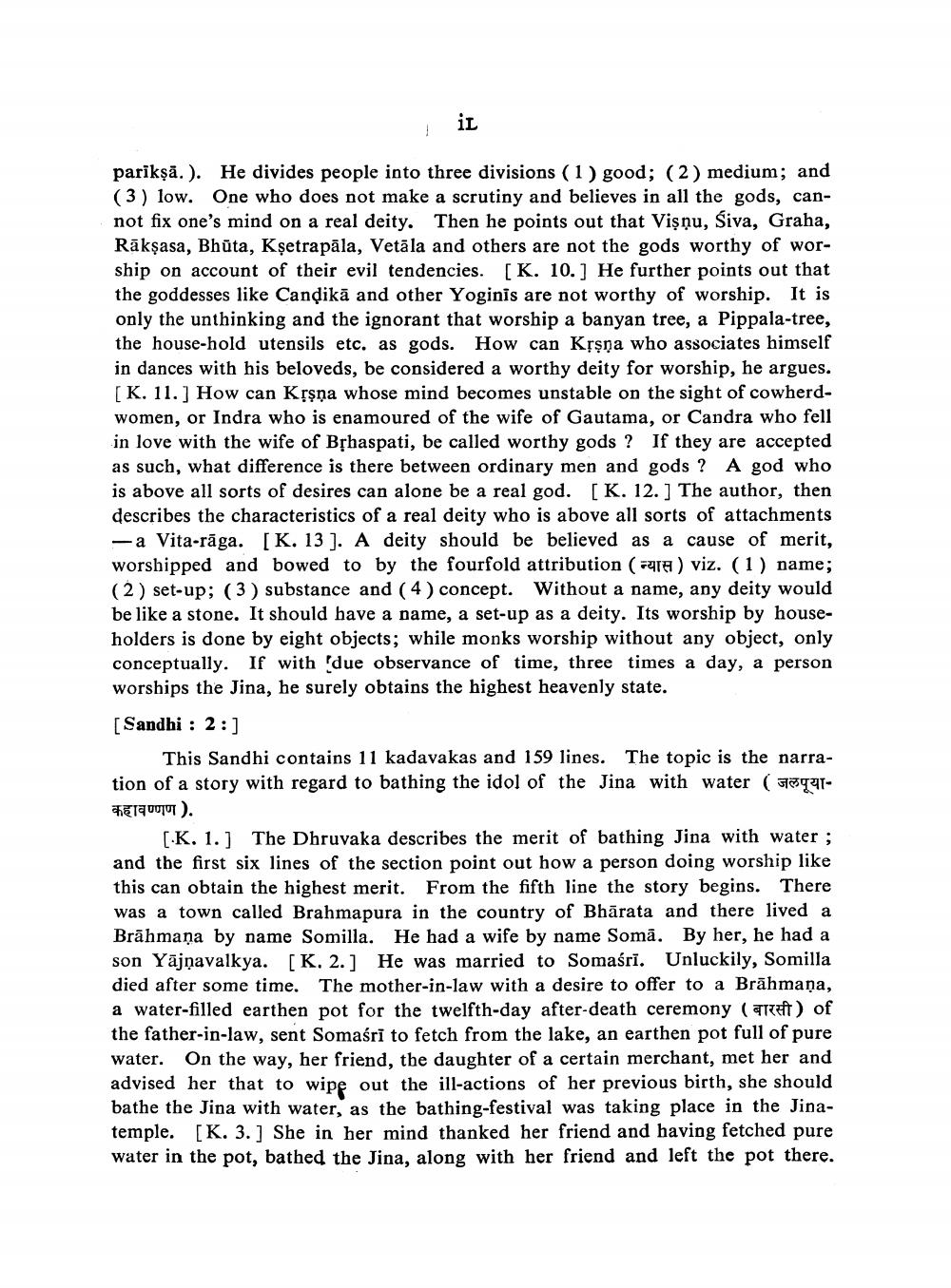________________
iL
pariksa.). He divides people into three divisions (1) good; (2) medium; and (3) low. One who does not make a scrutiny and believes in all the gods, cannot fix one's mind on a real deity. Then he points out that Vişņu, Siva, Graha, Raksasa, Bhūta, Kṣetrapāla, Vetāla and others are not the gods worthy of worship on account of their evil tendencies. [K. 10.] He further points out that the goddesses like Candika and other Yoginis are not worthy of worship. It is only the unthinking and the ignorant that worship a banyan tree, a Pippala-tree, the house-hold utensils etc. as gods. How can Kṛṣṇa who associates himself in dances with his beloveds, be considered a worthy deity for worship, he argues. [K. 11.] How can Kṛṣṇa whose mind becomes unstable on the sight of cowherdwomen, or Indra who is enamoured of the wife of Gautama, or Candra who fell in love with the wife of Brhaspati, be called worthy gods? If they are accepted as such, what difference is there between ordinary men and gods? A god who is above all sorts of desires can alone be a real god. [K. 12. ] The author, then describes the characteristics of a real deity who is above all sorts of attachments —a Vita-rāga. [K. 13]. A deity should be believed as a cause of merit, worshipped and bowed to by the fourfold attribution (H) viz. (1) name; (2) set-up; (3) substance and (4) concept. Without a name, any deity would be like a stone. It should have a name, a set-up as a deity. Its worship by householders is done by eight objects; while monks worship without any object, only conceptually. If with due observance of time, three times a day, a person worships the Jina, he surely obtains the highest heavenly state.
[Sandhi : 2:]
This Sandhi contains 11 kadavakas and 159 lines. The topic is the narration of a story with regard to bathing the idol of the Jina with water (aqar कहावणण ).
[K. 1.] The Dhruvaka describes the merit of bathing Jina with water; and the first six lines of the section point out how a person doing worship like this can obtain the highest merit. From the fifth line the story begins. There was a town called Brahmapura in the country of Bharata and there lived a Brāhmaṇa by name Somilla. He had a wife by name Somā. By her, he had a son Yajnavalkya. [K. 2.] He was married to Somaśrl. Unluckily, Somilla died after some time. The mother-in-law with a desire to offer to a Brāhmaṇa, a water-filled earthen pot for the twelfth-day after-death ceremony (art) of the father-in-law, sent Somaśrī to fetch from the lake, an earthen pot full of pure water. On the way, her friend, the daughter of a certain merchant, met her and advised her that to wipe out the ill-actions of her previous birth, she should bathe the Jina with water, as the bathing-festival was taking place in the Jinatemple. [K. 3.] She in her mind thanked her friend and having fetched pure water in the pot, bathed the Jina, along with her friend and left the pot there.




